MercoPress. South Atlantic News Agency
Tag: OPEC
-
Monday, July 2nd 2018 - 08:25 UTC
Saudi Arabia prepared to help with Trump's request “to pump more oil”, but gives no specifics

President Donald Trump said over the weekend that he had received assurances from King Salman of Saudi Arabia that the kingdom will increase oil production, “maybe up to 2,000,000 barrels” in response to turmoil in Iran and Venezuela. Saudi Arabia acknowledged the call took place, but mentioned no production targets.
-
Tuesday, June 26th 2018 - 08:35 UTC
Latest member to join OPEC expects to raise oil production by 65%
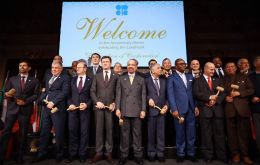
The Republic of Congo expects to raise oil production by as much 65% this year as two new projects come on stream, Hydrocarbons Minister Jean-Marc Thystere-Tchicaya said.
-
Saturday, June 23rd 2018 - 10:29 UTC
OPEC ministers agree to increase oil supplies, but volume has to be decided
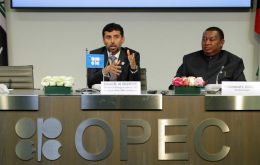
OPEC ministers announced a deal on Friday that will increase oil supplies from the producer group, which has been capping output in order to balance the market and boost prices for the last 18 months. The agreement came after a week of tense negotiation at OPEC's headquarters in Vienna, Austria. Top OPEC producer Saudi Arabia faced the challenge of convincing a handful of reluctant producers including Iran, Iraq, and Venezuela to support an output hike.
-
Wednesday, May 30th 2018 - 08:35 UTC
Shipping emissions the greatest challenge to oil price hikes

The most prominent driver of oil prices over the next two years is not likely to come from OPEC, Iran or Venezuela, but rather in the shape of a shipping revolution, analysts have warned. New rules coming into force in approximately 18 months' time are seen as a source of great concern for some of the world's biggest oil producers.
-
Thursday, May 17th 2018 - 18:02 UTC
IEA: High Oil Prices “Taking A Toll” On Demand
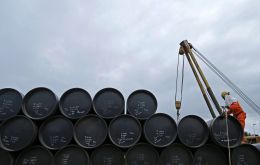
Geopolitics has taken over the oil market, driving oil prices up to three-year highs. The inventory surplus has vanished, and more outages could push oil prices up even higher. Yet, there are some signs that demand is starting to take a hit as oil closes in on $80 per barrel.
-
Wednesday, March 7th 2018 - 09:40 UTC
Venezuela oil production 1.5 million bpd short of its historic output
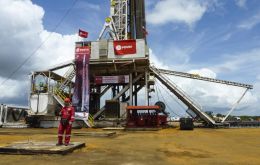
Venezuela’s oil production is running 1.5 million barrels per day (bpd) short of its historic output but it is something that the country must address itself, Ecuador oil minister Carlos Perez said. Caracas should address the shortfall on its own, added Perez on the sidelines of the CERAWeek energy conference in Houston.
-
Monday, March 5th 2018 - 08:25 UTC
Beware: OPEC and US shale industry scheduled to meet and share dinner in Houston
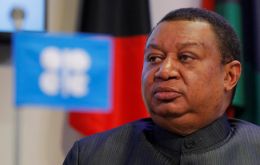
Oil prices rose early on Monday ahead of a meeting between OPEC and U.S. shale firms in Houston, raising expectations that oil producers would discuss further how to clear a global oil glut. Oil ministers from the Organization of the Petroleum Exporting Countries (OPEC) and other global oil players are set to gather in Houston as CERAWeek, the largest energy industry conference, begins on Monday.
-
Friday, August 4th 2017 - 07:08 UTC
Venezuela diverting oil to Russia's Rosneft, ignoring contracts in the US
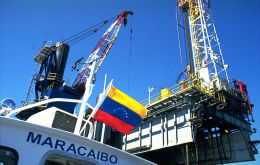
Venezuela's state-run PDVSA has reduced crude sales to its U.S. refining unit Citgo Petroleum while increasing supply to Russia's Rosneft, following a plan signed in May to catch up on overdue deliveries, according to PDVSA documents, sources from the company and its joint ventures.
-
Saturday, July 22nd 2017 - 08:39 UTC
Venezuelan situation overshadows Mercosur presidential summit
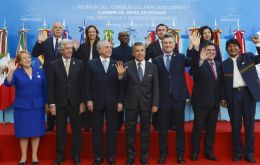
The members of Mercosur trade bloc called for an end to violence in Venezuela in a joint statement on Friday. However again opinions were divided: while Brazil and Argentina sponsored a more explicit warning to President Nicolas Maduro and his regime, Uruguay had it redrafted in a more conciliatory tone and Paraguay finally came out with a compromise option.
-
Tuesday, March 14th 2017 - 21:28 UTC
Is a second OPEC cut on the Cards?

OPEC's coordinated effort to curtail global supply has so far managed to put a floor under oil prices, which have been sitting modestly above US$50 since the deal was announced at the end of November last year. But resurging U.S. shale has been capping the upside, and Brent has not breached US$58 per barrel. Analysts and experts are now mostly predicting that oil prices will remain below US$60 this year.
